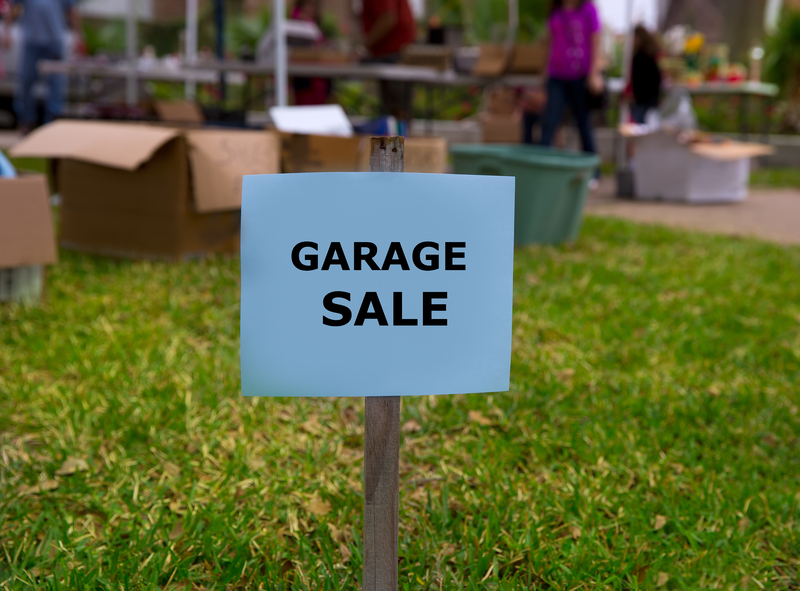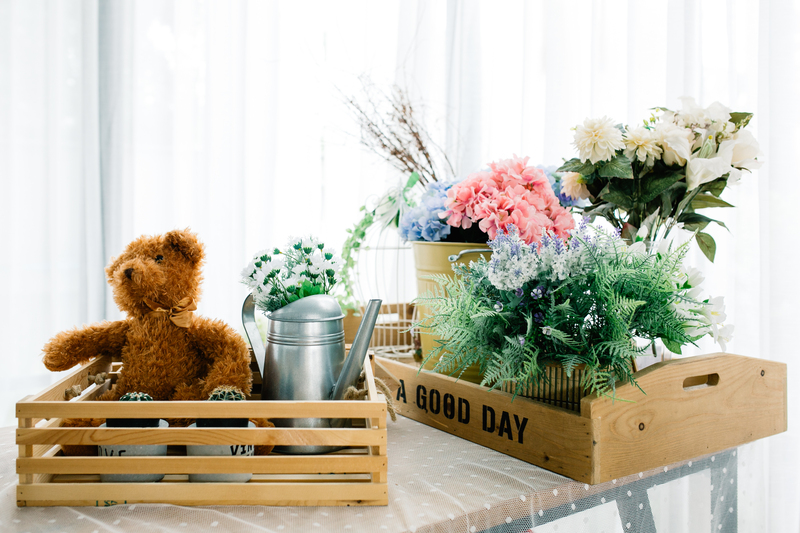Unwind and De-Stress by Clearing the Clutter: A Comprehensive Guide
In our fast-paced digital world, stress seems to slip into every nook and cranny of our lives. One often overlooked source of anxiety is clutter. Whether you're dealing with a messy desk, overflowing closets, or a jam-packed digital desktop, clutter can significantly impact your mental well-being. This article explores how decluttering your space helps you unwind, de-stress, and reclaim your peace of mind. Dive in to understand why clearing clutter is vital and discover actionable strategies to embrace a tidier, happier life.

Why Clutter Causes Stress
Have you ever noticed how entering a messy room instantly spikes your anxiety levels? The connection isn't just psychological; science backs it up. Studies show that physical clutter in your environment competes for your attention, making it harder to focus and process information. Combine this with the guilt of "should I clean that up?" and you have a recipe for chronic tension. Let's break down exactly why clutter is so stressful:
- Visual Overload: Messy spaces bombard your brain with too many visual stimuli, making it harder to relax and concentrate.
- Reduced Productivity: Searching for misplaced items wastes time and energy, adding to your daily frustrations.
- Sense of Control: Physical disorder often mirrors mental chaos, leaving you feeling overwhelmed and out of control.
- Emotional Weight: Cluttered spaces can spark feelings of guilt, shame, and even hopelessness.
Recognizing the damage clutter can do to your mindset is the first step toward building a more peaceful, productive environment.
The Benefits of Unwinding by Clearing Clutter
- Mental Clarity: Decluttering your home or workspace leads to an immediate sense of calm and mental sharpness.
- Reduced Anxiety: An organized environment decreases cortisol levels, directly reducing your stress responses.
- Increased Productivity: Less time spent searching for things means more time focusing on what truly matters.
- Enhanced Creativity: Clean spaces act as a blank canvas, allowing you to think more freely and creatively.
- Improved Sleep: Studies suggest that organized bedrooms facilitate better quality sleep, crucial for emotional resilience.
- Self-Esteem Boost: Completing a decluttering project gives a sense of achievement and reinforces positive self-image.
How Clearing the Clutter Contributes to Stress Relief
The act of decluttering serves as a powerful mindful practice. Focusing on one task at a time -- whether it's organizing your bookshelf or cleaning your closet -- anchors you in the present. This mindfulness distracts you from worries and fosters a sense of accomplishment, both of which are key for winding down after a long day.
Additionally, letting go of unnecessary items is an exercise in release. By discarding what you don't need, you signal to yourself that you have agency over your life and surroundings. This sense of control is essential for reducing stress and anxiety.
Step-by-Step Guide to Unwind and De-Stress by Clearing Clutter
1. Set Realistic Goals
*Decluttering everything at once can be overwhelming and counterproductive.* Instead, break your project into manageable tasks. Focus on one area at a time: your desk, closet, bedside table, or even a single drawer. Celebrate small victories -- every bit counts!
2. Create a Clutter-Clearing Plan
Planning helps you stay committed. Make a checklist or schedule your decluttering sessions. Allot 15-30 minutes each day, or set aside a weekend for deeper organization.
- Pick a time when you're least likely to be interrupted.
- Play your favorite music or podcast for motivation.
- Have storage bins or bags ready for items to throw away or donate.
3. Sort and Categorize
As you clear each space, sort items into categories:
- Keep - Items you use and love.
- Donate/Sell - Things in good condition, but no longer serve you.
- Recycle/Throw Away - Broken, outdated, or unneeded items.
Use the four-box method or try the popular KonMari method (keep only what "sparks joy") to help streamline the process.
4. Organize your Space
Once you've sorted through your belongings, designate a specific place for everything. Use trays, bins, and organizers to keep similar items together. Label storage if needed -- this saves time and prevents future clutter from building up.
- Use clear containers to see contents at a glance.
- Opt for vertical storage to maximize space.
- Rotate seasonal items to make frequently used objects more accessible.
5. Maintain a Clutter-Free Environment
The greatest challenge is keeping your environment organized long-term:
- Spend 5-10 minutes daily tidying up.
- Follow the "one in, one out" rule.
- Schedule seasonal purges to keep things in check.
- Involve your family or housemates to create a supportive, clutter-free culture.
Physical, Emotional, and Digital Clutter: A Holistic Approach
Often, we associate decluttering with our physical spaces, but clutter can also be emotional or digital.
Physical Clutter
This is the easiest to spot -- think stacks of magazines, overflowing drawers, clothes you no longer wear. Physical clutter blocks energy flow in your home and can even trigger health issues like dust allergies.
- Regularly clean floors, counters, and surfaces.
- Invest in multi-functional furniture with hidden storage.
- Let natural light and fresh air in to revitalize rooms.
Emotional Clutter
Not all clutter is visible. Unresolved emotions, past grievances, and mental to-do lists can pile up and weigh you down. Journaling, meditation, and talking to a trusted friend or therapist can help you "clear out" the mind's mess, making room for positivity and calm.
- Practice deep breathing to reset when you feel overwhelmed.
- Write down worries and set them aside before bed.
- Make gratitude lists to shift focus from stressors to blessings.
Digital Clutter
Digital disorganization is a 21st-century burden. Hundreds of unread emails, unused apps, and scattered files can clutter your virtual space, causing distraction and stress.
- Clean your email inbox and unsubscribe from unnecessary newsletters.
- Organize desktop files and folders.
- Delete unused apps and regularly backup important data.
Declutter to Improve Your Well-being: Practical Tips
Decluttering Techniques to Help You Relax
- Set a Timer: Spend 15-30 minutes each day on a small decluttering project -- consistency beats marathon sessions.
- Practice the "One-Minute Rule": If you can do it in one minute (like put away shoes or file a document), do it immediately.
- Marie Kondo Your Life: Evaluate if each object "sparks joy"; if not, thank it and let it go.
- Start with Easy Wins: Tackle visible clutter first (e.g., clear the coffee table or make your bed) for instant gratification.
- Create Focus Zones: Designate areas in your home for specific purposes (e.g., work, relaxation, play) and keep them clutter-free.
Transform the Decluttering Process into Self-Care
Think of clearing clutter as a form of self-love and self-care, not punishment. Put on music, light a scented candle, or reward yourself with a walk after each decluttering session. Embrace the process, and let it become a nurturing part of your routine.
Declutter with the Family
Get everyone involved! Assign "zones" for each family member and celebrate together after clearing the clutter. Turning it into a group effort creates accountability and makes the process more enjoyable.
Busting Decluttering Myths
- Myth 1: "I need a lot of time to declutter." - Not true! Short, consistent sessions are often more effective than one long day of organizing.
- Myth 2: "Decluttering is expensive." - You don't need fancy organizers. Repurpose boxes, jars, or baskets you already have.
- Myth 3: "I'll never be a tidy person." - Organization is a skill anyone can learn over time with patience and practice.

From Chaos to Calm: Creating Lasting Change Through Decluttering
A clutter-free environment nurtures a clutter-free mind. When you unwind by clearing the clutter, you are not just tidying up your surroundings; you are setting the tone for a more peaceful, intentional life. The act of letting go -- whether it's unused kitchen gadgets, outdated paperwork, or mental baggage -- makes space for new opportunities, ideas, and joy.
- Visualize the result: Imagine the mental and emotional relief a clean space will give you.
- Set reminders: Make decluttering a non-negotiable part of your wellness routine.
- Forgive mishaps: Slip-ups are normal; simply reset and continue.
Conclusion: Embrace the Art of Unwinding by Clearing Clutter
Life is too precious to spend overwhelmed by mess and stress. Clearing clutter is one of the simplest, most effective ways to unwind, de-stress, and reclaim control over your surroundings and emotional state. You don't need to aim for perfection -- just focus on progress. Start small, stay consistent, and notice how each cleared space lifts a weight from your shoulders.
Remember, your living space is a direct reflection of your inner world. By nurturing an organized environment, you invite relaxation, joy, and clarity into your life. Start your clutter-clearing journey today and give yourself the gift of true peace of mind.
Ready to unwind and de-stress by tackling the clutter? Take the first step now -- your calmer, happier self awaits!